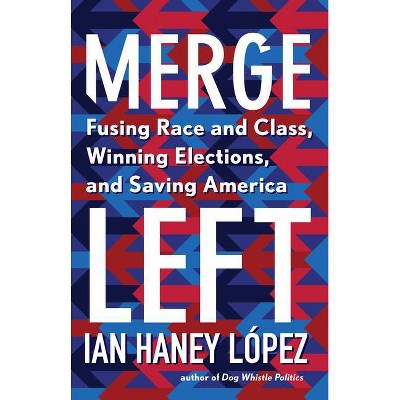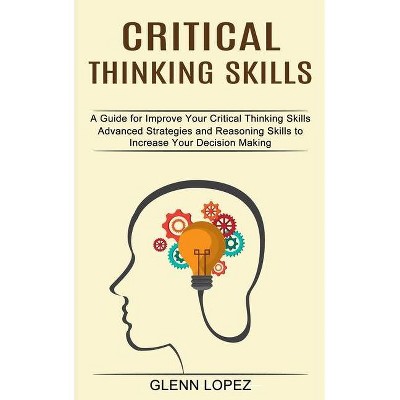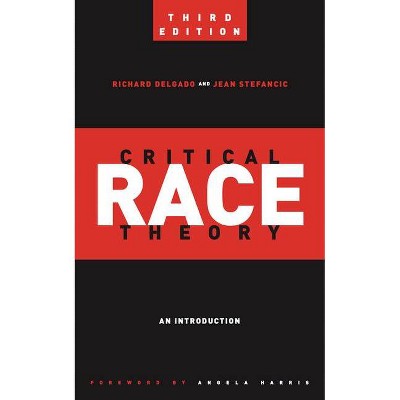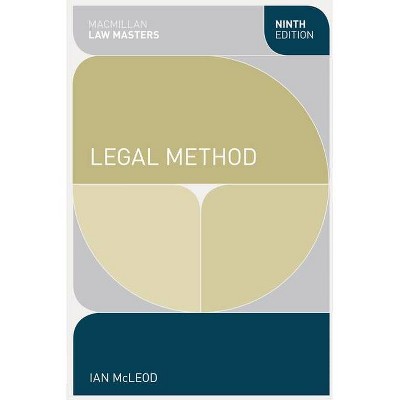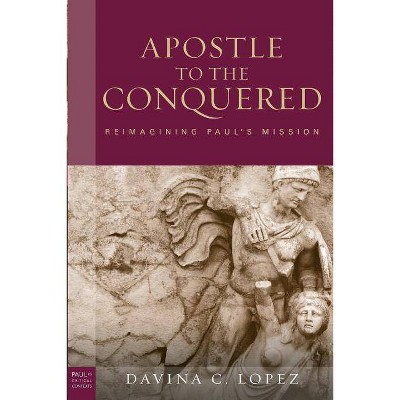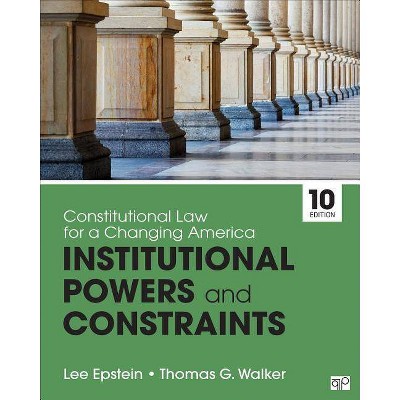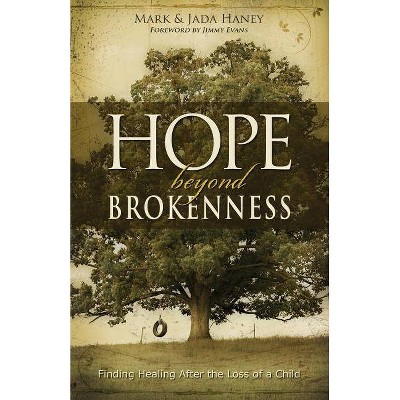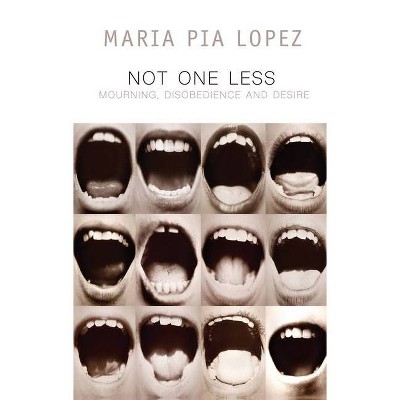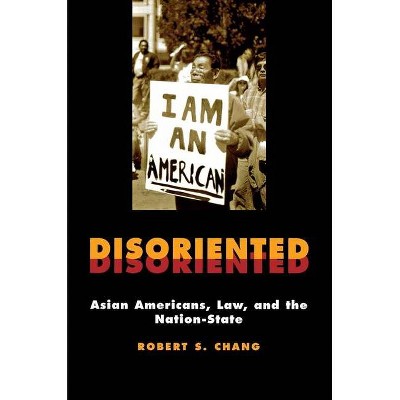White by Law 10th Anniversary Edition - (Critical America) by Ian Haney Lopez (Paperback)
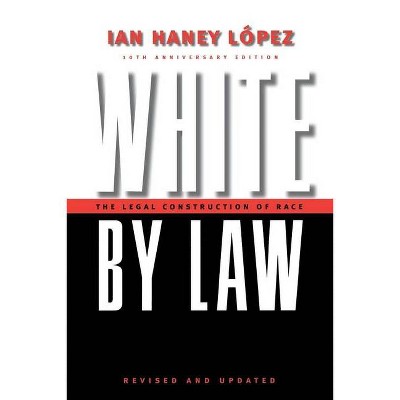
Similar Products
Products of same category from the store
AllProduct info
<p/><br></br><p><b> About the Book </b></p></br></br>"Whiteness pays. As White by Law shows, immigrants recognized the value of whiteness and sometimes petitioned the courts to be recognized as white. Haney Lspez argues for the centrality of law in constructing race."--Voice Literary Supplement"White by Law's thoughtful analysis of the prerequisite cases offers support for the fundamental critical race theory tenet that race is a social construct reinforced by law. Haney Lspez has blazed a trail for those exploring the legal and social constructions of race in the United States."--Berkeley Women's Law JournalLily white. White knights. The white dove of peace. White lie, white list, white magic. Our language and our culture are suffused, often subconsciously, with positive images of whiteness. Whiteness is so inextricably linked with the status quo that few whites, when asked, even identify themselves as such. And yet when asked what they would have to be paid to live as a black person, whites give figures running into the millions of dollars per year, suggesting just how valuable whiteness is in American society.Exploring the social, and specifically legal origins, of white racial identity, Ian F. Haney Lopez here examines cases in America's past that have been instrumental in forming contemporary conceptions of race, law, and whiteness. In 1790, Congress limited naturalization to white persons. This racial prerequisite for citizenship remained in force for over a century and a half, enduring until 1952. In a series of important cases, including two heard by the United States Supreme Court, judges around the country decided and defined who was white enough to become American.White by Law traces the reasoning employed by the courts intheir efforts to justify the whiteness of some and the non- whiteness of others. Did light skin make a<p/><br></br><p><b> Book Synopsis </b></p></br></br><p><em>White by Law</em> was published in 1996 to immense critical acclaim, and established Ian Haney López as one of the most exciting and talented young minds in the legal academy. The first book to fully explore the social and specifically legal construction of race, <em>White by Law</em> inspired a generation of critical race theorists and others interested in the intersection of race and law in American society. Today, it is used and cited widely by not only legal scholars but many others interested in race, ethnicity, culture, politics, gender, and similar socially fabricated facets of American society.</p><p>In the first edition of <em>White by Law</em>, Haney López traced the reasoning employed by the courts in their efforts to justify the whiteness of some and the non-whiteness of others, and revealed the criteria that were used, often arbitrarily, to determine whiteness, and thus citizenship: skin color, facial features, national origin, language, culture, ancestry, scientific opinion, and, most importantly, popular opinion.</p><p>Ten years later, Haney López revisits the legal construction of race, and argues that current race law has spawned a troubling racial ideology that perpetuates inequality under a new guise: colorblind white dominance. In a new, original essay written specifically for the 10th anniversary edition, he explores this racial paradigm and explains how it contributes to a system of white racial privilege socially and legally defended by restrictive definitions of what counts as race and as racism, and what doesn't, in the eyes of the law. The book also includes a new preface, in which Haney Lopez considers how his own personal experiences with white racial privilege helped engender <em>White by Law</em>.</p><p/><br></br><p><b> Review Quotes </b></p></br></br><br>Here is one work that proved challenging to review with a fresh eye, having been widely reviewed and discussed since its original publication more than 10 years ago....While one's first question upon picking up such a book could easily be & why bother? with the re-release of an older work, in this case, the strategy works....[T]he addition of the author's personal narrative in the Preface and his intriguing view into the future with the new conclusion will add to the book's pedagogical value. In sum, Haney Lopez has provided a piece of scholarship worthy of bringing out a curtain call on its 10th anniversary.-- "Law and Politics Review"<br><br>Praise for the 1st edition: Haney López performs a major service for anyone truly interested in understanding contemporary debates over racial and ethnic politics. . . . A sobering and crucial lesson for a society committed to equality and fairness.--Martha Minow, Harvard Law School<br><br>Praise for the 10th Anniversary EditionWhite by Law remains one of the most significant and generative entries in the crowded field of & whiteness studies. Ian Haney López has crafted a brilliant study, not merely of how & race figures in the juridical logic of U.S. citizenship, but of the ways in which law fully participates in the wholesale manufacture of those naturalized groupings we know as 'races.' A terribly important work.--Matthew Frye Jacobson, author of Roots Too: White Ethnic Revival in Post-Civil Rights America<br><br>Ten years after its initial publication, White by Law remains the definitive treatment of the naturalization cases, and provides a compelling account of the role of law in constructing race. A wonderful combination of thematic development and historical excavation, one leaves this revised edition with a thoroughgoing understanding of the ways in which citizenship functioned not only to include and exclude but as a process through which people quite literally became white by law.--Devon W. Carbado, Professor of Law and Associate Dean, UCLA School of Law<br><br>White by Law remains the definitive work on how American law constructed a & white race at the turn of the twentieth century. Haney López has added a chapter to the new edition, a sobering analysis of how, in our own time, 'colorblind' law and policy threaten to perpetuate, not eliminate, racial inequality. A must-read--Mae M. Ngai, author of Impossible Subjects: Illegal Aliens and the Making of Modern America<br>
Price History
Cheapest price in the interval: 27 on October 22, 2021
Most expensive price in the interval: 27 on November 8, 2021
Price Archive shows prices from various stores, lets you see history and find the cheapest. There is no actual sale on the website. For all support, inquiry and suggestion messagescommunication@pricearchive.us
